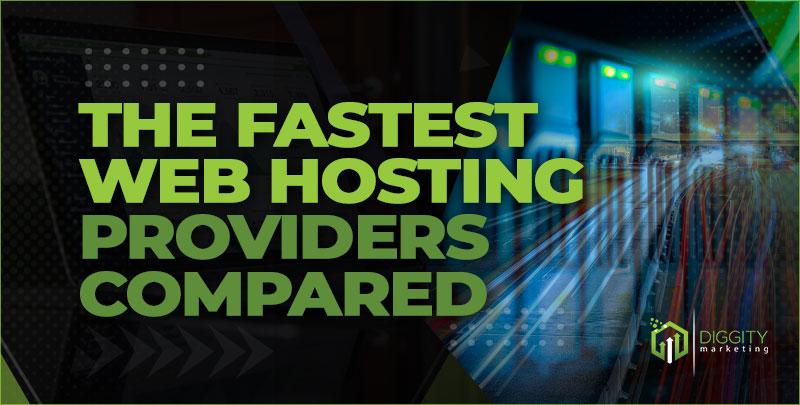When comparing WP Engine and WordPress.com, the choice often hinges on specific needs. WP Engine boasts premium managed hosting with robust performance, while WordPress.com offers flexible, budget-friendly plans. Explore their differences to find your perfect fit.
WP Engine vs WordPress.com: Who Has the Better Plans and Prices?
In the ever-evolving landscape of web hosting, choosing the right platform for your website is akin to selecting the perfect foundation for a house. With a multitude of options available, two names often rise to the forefront: WP Engine and WordPress.com. Both serve as powerful solutions for hosting WordPress sites, but they cater to different needs and audiences. In this article, we delve into the intricacies of their offerings, examining the plans and pricing structures of each platform. By comparing features, performance, and customer service, we aim to illuminate the best choice for creators, bloggers, and businesses alike. Whether you’re a seasoned developer or a budding entrepreneur, our exploration will provide the clarity needed to make an informed decision. Join us as we navigate the world of WP Engine and WordPress.com to determine which platform truly reigns supreme in the realm of web hosting.
Exploring the Basics of WP Engine and WordPress.com
When it comes to choosing a platform for your website, understanding the fundamentals of WP Engine and WordPress.com is crucial. Both options cater to WordPress users but serve different needs and budgets. WP Engine is renowned for its robust hosting solutions, especially for businesses that require high performance and scalability. Its plans are tailored for those who prioritize speed, security, and dedicated support.
On the other hand, WordPress.com offers a more accessible entry point for beginners and casual users. With its freemium model, individuals can start with basic features at no cost and scale up as their needs grow. This platform is ideal for personal blogs and simple websites, making it a popular choice for users who are just getting started in the world of web development.
Here’s a quick comparison of their offerings:
| Feature | WP Engine | WordPress.com |
|---|---|---|
| Performance | High-speed hosting | Variable, depending on plan |
| Support | 24/7 expert support | Email support, limited |
| Price Range | Starting at $20/month | Free to premium plans |
| Customization | Full control over plugins and themes | Restricted on free plans |
WP Engine shines in performance and support, making it an excellent choice for businesses and serious bloggers, while WordPress.com provides a user-friendly experience for those looking for simplicity and ease of use. The decision ultimately hinges on your specific needs—whether you prioritize features or budget.

Understanding the Target Audience for Each Platform
When evaluating the best hosting options for your website, it’s crucial to understand the distinct target audiences for WP Engine and WordPress.com. Each platform caters to different user needs, which can significantly influence the choice between them.
WP Engine is designed primarily for businesses and professional developers seeking robust performance and scalability. This platform appeals to:
- Corporate Websites: Organizations requiring high-level security and performance.
- Agencies: Digital marketing and web development firms that manage multiple clients.
- Custom Development: Developers who need advanced features and tools for complex projects.
On the other hand, WordPress.com targets a broader audience, making it more accessible to casual users and hobbyists. Its appeal includes:
- Bloggers: Individuals looking to start their writing journey without technical hurdles.
- Small Businesses: Owners who need an easy-to-manage website without extensive coding.
- Nonprofits: Organizations seeking affordable solutions to create an online presence.
| Feature | WP Engine | WordPress.com |
|---|---|---|
| Target Audience | Businesses & Developers | General Users & Bloggers |
| Performance | High | Moderate |
| Ease of Use | Moderate | High |
| Customization | Extensive | Limited (unless upgraded) |
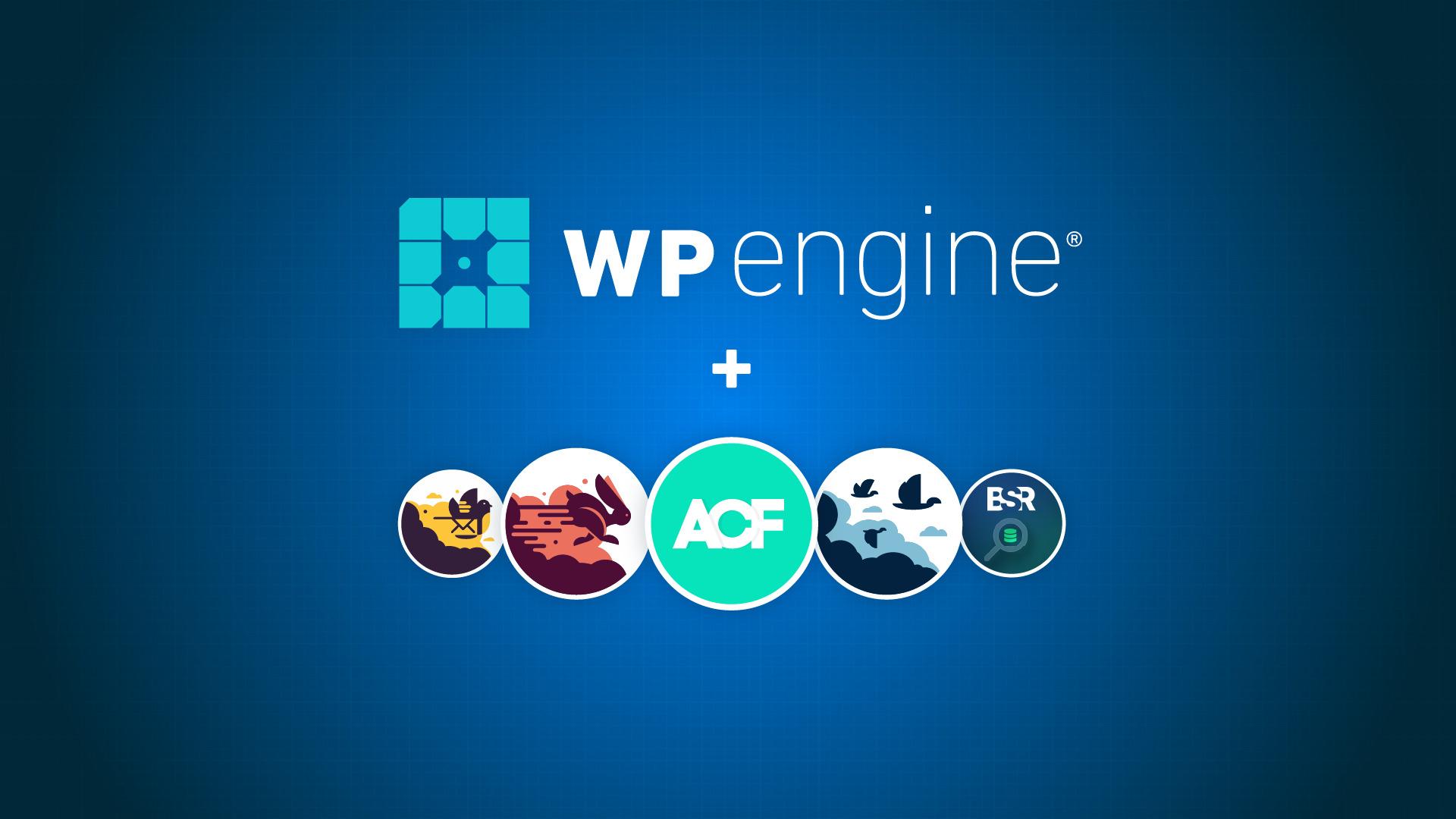
Comparative Overview of Hosting Features
When considering hosting options for your WordPress site, WP Engine and WordPress.com present distinct features tailored to different needs. WP Engine is renowned for its premium managed WordPress hosting, offering a suite of developer-friendly tools and robust performance enhancements. In contrast, WordPress.com caters to a broader audience, providing both free and paid plans that simplify the user experience, especially for beginners.
Key Features of WP Engine:
- Managed Hosting: Automatic updates, security, and backups.
- Performance Optimization: Built-in caching and CDN integration.
- Developer Tools: Staging environments and Git integration.
- Expert Support: 24/7 support from WordPress experts.
Key Features of WordPress.com:
- User-Friendly Interface: Easy setup and management for newcomers.
- Free Plan Option: Basic features accessible at no cost.
- Custom Domains: Available with upgraded plans.
- Community and Support: Access to forums and tutorials.
| Feature | WP Engine | WordPress.com |
|---|---|---|
| Performance | High-performance with caching | Good for basic sites |
| Support | 24/7 expert support | Community-driven support |
| Pricing | Starts at $20/month | Free & paid plans available |
| Customization | Extensive flexibility | Limited on free plans |
Ultimately, the choice between WP Engine and WordPress.com hinges on your specific requirements. If you seek high-speed performance and developer features, WP Engine is a compelling option. Conversely, for individuals or small businesses looking for straightforward setup and cost-effective solutions, WordPress.com might be the preferable choice.

Diving into Performance and Speed: A Closer Look
When evaluating WP Engine and WordPress.com, performance and speed emerge as critical factors that can influence your decision-making process. Both platforms offer unique advantages, but their approaches to optimizing speed can significantly impact user experience and search engine rankings.
WP Engine is renowned for its robust infrastructure, particularly with features like:
- Dynamic caching capabilities
- Built-in Content Delivery Network (CDN)
- Automatic scaling during traffic spikes
- Optimized for high-performance WordPress hosting
This setup ensures that websites hosted on WP Engine load quickly and can handle a substantial amount of traffic without compromising performance. Additionally, their commitment to using the latest technology contributes to faster response times and overall site efficiency.
On the other hand, WordPress.com provides a more user-friendly approach, especially for those new to website management. However, its performance optimization features are typically less advanced compared to WP Engine. Key points include:
- Basic caching mechanisms
- Standardized hosting environments
- Performance tailored for smaller sites or blogs
While WordPress.com may serve well for personal blogs or small business websites, it may struggle with speed and performance as traffic increases. For users who expect rapid growth or high traffic volumes, WP Engine’s specialized performance features may present a more reliable solution.
| Feature | WP Engine | WordPress.com |
|---|---|---|
| Caching | Advanced | Basic |
| CDN | Included | Available (Paid) |
| Scaling | Automatic | Manual |
| Performance | High | Moderate |
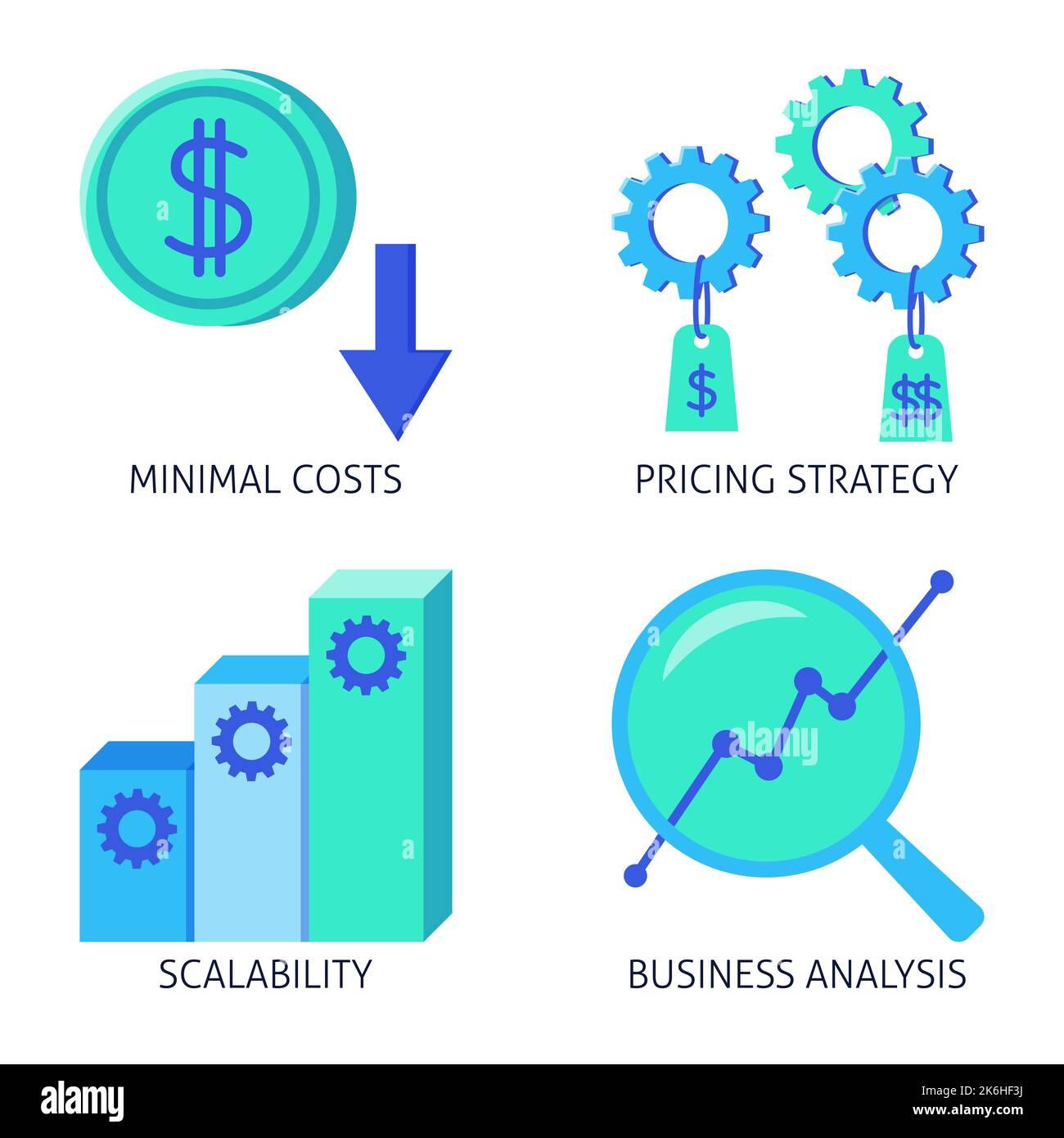
Analyzing Scalability Options for Growing Websites
When evaluating scalability options for websites, especially for those built on WordPress, both WP Engine and WordPress.com offer unique advantages tailored to different needs. WP Engine is renowned for its managed hosting solutions, which are particularly appealing for businesses anticipating rapid growth. Their plans are designed with performance and security in mind, providing automatic updates, daily backups, and unparalleled support. This structure allows businesses to scale without worrying about the underlying infrastructure.
On the other hand, WordPress.com provides a more flexible approach, especially for small to medium-sized sites. Their tiered pricing system allows users to start with a basic plan and gradually upgrade as their site demands grow. This can be advantageous for bloggers or small businesses testing the waters before committing to a higher service level. Key features of WordPress.com plans include:
- Built-in Traffic Management: Automatically handles traffic spikes.
- Customizable Themes: Access to a range of designs that can adapt as the site grows.
- Community Support: Engage with other users for insights and troubleshooting.
To further compare the two options, here’s a concise overview of their scalability features:
| Feature | WP Engine | WordPress.com |
|---|---|---|
| Performance Optimization | Yes | Basic (upgradable) |
| Automatic Scaling | Yes | No |
| Custom Domain Support | Yes | Yes (Premium plans) |
| Customer Support | 24/7 Support | Community & Email Support |
Ultimately, the choice between WP Engine and WordPress.com boils down to the specific needs of your website and projected growth. For high-traffic sites requiring robust support, WP Engine shines with its tailored solutions. Conversely, for those seeking flexibility and a gradual scaling approach, WordPress.com presents a compelling option.

Customer Support: Who Offers the Better Assistance?
When it comes to customer support, the experience can significantly influence your overall satisfaction with a service provider. Both WP Engine and WordPress.com are known for their customer service offerings, but they cater to different types of users and needs.
WP Engine focuses on providing premium managed WordPress hosting, which typically includes a more personalized support experience. Their support team is composed of WordPress experts available 24/7 via:
- Live chat
- Phone support
- Email support
This premium support approach ensures that users receive tailored solutions to their specific WordPress challenges, especially those involving more complex configurations and performance optimization.
On the other hand, WordPress.com offers a more generalized support system, catering to a broader audience with various plans ranging from free to premium. Their support structure includes:
- Help center with extensive documentation
- Email support for paid plans
- Community forums for peer-to-peer assistance
While the help center is rich in resources, users may find that the wait times for responses can be longer, especially on lower-tier plans, which could be a consideration for users needing timely assistance.
| Feature | WP Engine | WordPress.com |
|---|---|---|
| 24/7 Support Availability | ✔️ | ✔️ (Paid Plans Only) |
| Live Chat Support | ✔️ | ❌ |
| Email Support | ✔️ | ✔️ (Paid Plans Only) |
| Community Forums | ❌ | ✔️ |
| Expertise Level | High | Moderate |
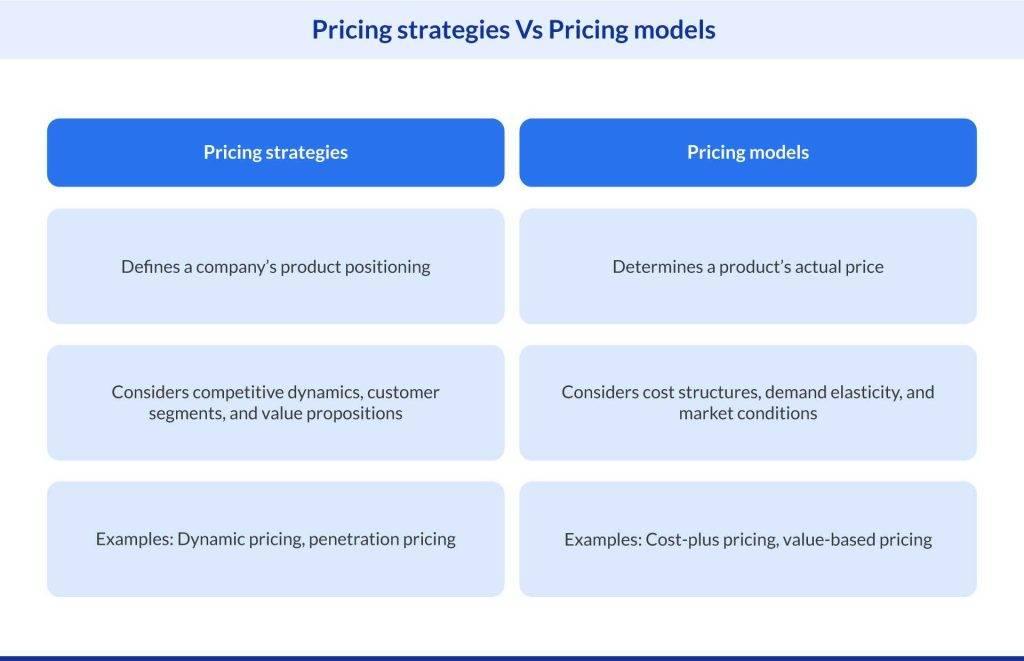
Pricing Structures: Breaking Down the Costs
When comparing WP Engine and WordPress.com, it’s essential to consider their pricing structures, which cater to different user needs and budgets. WP Engine primarily targets businesses and serious developers looking for robust hosting solutions. Their plans are structured based on the performance and scalability required by the websites they host. Here’s a quick breakdown of their pricing tiers:
| Plan | Monthly Price | Key Features |
|---|---|---|
| Startup | $20 | 1 Website, 10 GB Storage, 50 GB Bandwidth |
| Professional | $39 | 3 Websites, 15 GB Storage, 75 GB Bandwidth |
| Business | $77 | 10 Websites, 30 GB Storage, 150 GB Bandwidth |
On the other hand, WordPress.com offers a variety of pricing plans that cater to casual users, bloggers, and small businesses. They provide a more straightforward pricing structure, with options ranging from free to premium services. The plans are designed to fit different levels of customization and features:
- Free: Basic features with ads and limited storage.
- Personal: $4/month, no ads, custom domain, and basic monetization.
- Business: $25/month, unlimited storage, and access to plugins and themes.
- eCommerce: $45/month, ideal for online stores with advanced features.
Each platform has its unique advantages, with WP Engine focusing on performance and technical support, while WordPress.com emphasizes accessibility and ease of use for beginners. Understanding the specific needs of your project can help you determine which pricing structure aligns with your goals.
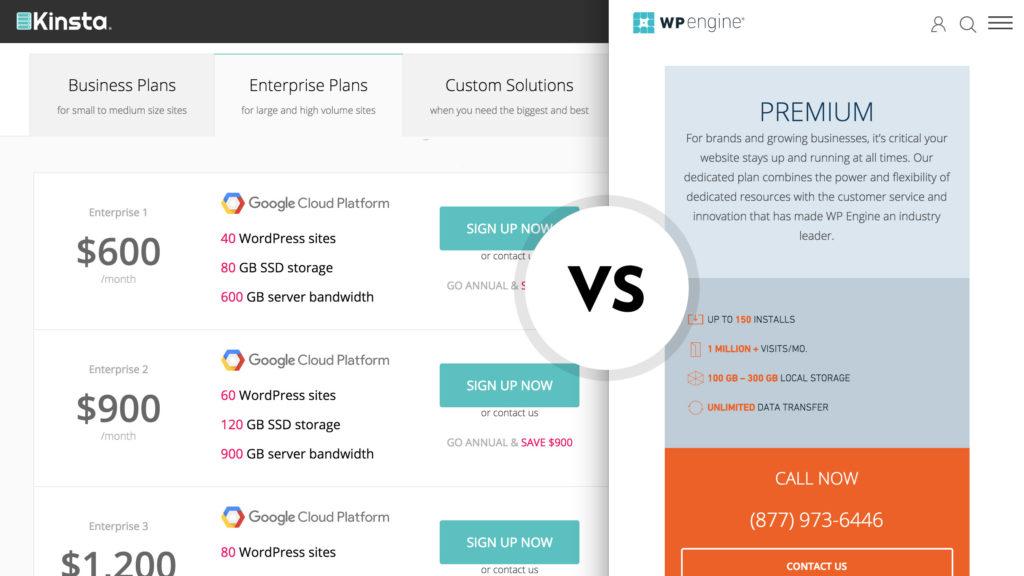
Evaluating Value for Money in Each Plan
When comparing the plans offered by WP Engine and WordPress.com, it’s essential to assess not only the price but also the features that come bundled with each plan. Value for money is about finding the right balance between cost and the benefits that enhance your website’s performance, security, and manageability.
WP Engine tends to be on the higher end of the pricing spectrum, yet it offers a range of premium features that justify the expense. Key advantages include:
- Managed Hosting: Automatic updates and backups ensure your site runs smoothly.
- Performance Optimization: Built-in caching and a content delivery network (CDN) enhance load times.
- Robust Security: Advanced threat detection and proactive security measures protect your site.
On the other hand, WordPress.com provides a variety of plans catering to different budgets, making it accessible for beginners and small businesses. While it may lack some of WP Engine’s advanced features, it compensates with:
- Affordability: Lower entry-level pricing is ideal for startups.
- User-Friendly Interface: Simplified management makes it easy for non-technical users.
- Basic Security Features: Standard protections against common threats are included.
To illustrate, here’s a simple comparison of the entry-level plans:
| Provider | Starting Price | Key Features |
|---|---|---|
| WP Engine | $20/month | Managed hosting, CDN, daily backups |
| WordPress.com | $4/month | Free themes, basic security, community support |
the decision hinges on your specific needs. If you’re looking for high performance and advanced features, WP Engine’s pricing may be justified. Conversely, for those starting out or on a budget, WordPress.com offers substantial value at a lower cost, making it a viable option for many users.
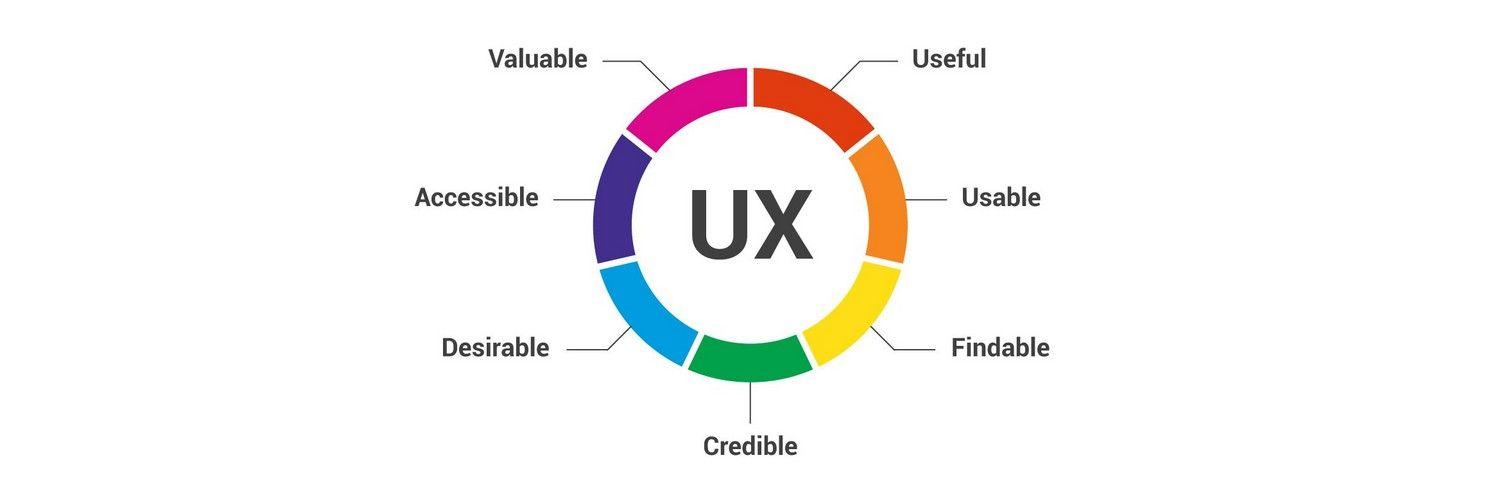
User Experience: Interface and Ease of Use
When it comes to user experience, both WP Engine and WordPress.com offer distinct interfaces that cater to different audiences. WP Engine, a managed WordPress hosting platform, provides a clean and professional dashboard tailored for developers and businesses. The interface is designed to streamline operations, allowing users to manage multiple sites seamlessly. Key features include:
- One-click staging environments for easy testing and deployment.
- Performance metrics to monitor site speed and uptime.
- Advanced caching options that enhance load times.
On the other hand, WordPress.com is user-friendly and ideal for beginners and casual users. Its interface is intuitive, focusing on ease of use with drag-and-drop functionality. Users can quickly create and customize their sites without any coding knowledge. Some notable characteristics include:
- A variety of themes to choose from, making personalization simple.
- Built-in social sharing tools that enhance engagement.
- Guided setup process to help new users get started effortlessly.
To better understand the user experience offered by both platforms, consider the following comparison:
| Feature | WP Engine | WordPress.com |
|---|---|---|
| Interface Type | Developer-friendly dashboard | User-friendly, drag-and-drop |
| Customization | Advanced with coding | Limited without upgrades |
| Support | 24/7 expert support | Community support and plans vary |
Ultimately, the choice between WP Engine and WordPress.com may come down to the user’s specific needs and familiarity with web development. For those seeking extensive customization and control, WP Engine stands out. Conversely, users who prioritize simplicity and ease of setup may find WordPress.com to be the better option.

Security Features: Protecting Your Online Presence
When it comes to safeguarding your online presence, the choice of platform plays a crucial role. Both WP Engine and WordPress.com offer robust security features designed to protect your website and its visitors from potential threats. However, their approaches and implementations differ, catering to varying needs of users.
- Daily Backups: WP Engine provides automated daily backups, ensuring that your data is safe and can be restored with ease in case of an incident.
- SSL Certificates: Both platforms offer free SSL certificates, which are essential for encrypting data and establishing trust with your audience.
- Threat Detection: WP Engine includes advanced threat detection systems that monitor for vulnerabilities and attacks in real-time, while WordPress.com has built-in security plugins that offer basic protection against common threats.
- Firewall Protection: WP Engine boasts a robust firewall that helps block malicious traffic, whereas WordPress.com benefits from WordPress’ native security features that provide a safety net for smaller sites.
Moreover, the ease of use and management of these security features can also impact your decision. WP Engine’s dashboard offers a user-friendly interface that allows you to easily monitor your site’s security status and make adjustments as needed. In contrast, WordPress.com takes a more hands-off approach, automatically managing many security aspects, which can be beneficial for users who prefer a set-it-and-forget-it model.
| Feature | WP Engine | WordPress.com |
|---|---|---|
| Daily Backups | ✔️ | ✔️ (limited) |
| SSL Certificate | ✔️ | ✔️ |
| Threat Detection | Advanced | Basic |
| Firewall Protection | Robust | Basic |

Customization Flexibility: Themes and Plugins
One of the most significant differences between WP Engine and WordPress.com lies in the level of customization they offer. WP Engine provides a robust framework for users who want to delve into the nitty-gritty of website design. With access to a wide array of premium themes and plugins, users can create a unique online presence that aligns perfectly with their brand identity. This flexibility allows for tailored solutions that can accommodate various businesses, from startups to large enterprises.
On the other hand, WordPress.com offers a more streamlined experience, catering primarily to users who prefer simplicity over complexity. While it does provide some themes and plugins, the selection is limited compared to WP Engine. This can be a double-edged sword: for those just starting out, the ease of use is appealing, but for more advanced users, the restrictions may feel confining. Here’s a quick comparison of customization options:
| Feature | WP Engine | WordPress.com |
|---|---|---|
| Themes | Extensive library of premium themes | Limited selection of free themes |
| Plugins | Full access to all plugins | Restricted plugin access (only for Business plans) |
| Customization Level | High (code access available) | Moderate (limited custom CSS in lower plans) |
Ultimately, the choice between the two boils down to the intended use of the website. For businesses that prioritize performance and customized solutions, WP Engine shines brightly. Conversely, for casual bloggers or those looking to create a simple portfolio, WordPress.com might be the more suitable option. Understanding these differences can help users make an informed decision that meets their specific needs.

E-commerce Capabilities: Which Platform Excels?
When it comes to e-commerce functionalities, both WP Engine and WordPress.com offer unique advantages tailored to different user needs. WP Engine stands out primarily for its performance and advanced features, making it an excellent choice for businesses looking to scale. With WP Engine, users benefit from:
- Managed Hosting: Optimized for speed and security, ensuring that online stores run smoothly.
- Built-in Caching: Enhances loading times, which is crucial for retaining customers and boosting sales.
- Staging Environments: Allows users to test changes before going live, minimizing risks associated with updates.
On the other hand, WordPress.com presents a more beginner-friendly interface, making it accessible for those new to e-commerce. It offers simpler setup features but with limited customization. Key highlights include:
- Ease of Use: Straightforward tools for setting up an online store without extensive technical knowledge.
- Integration with WooCommerce: Provides essential e-commerce functionalities with various themes designed for retail.
- Affordable Plans: Competitive pricing makes it an attractive option for small businesses and startups.
Ultimately, the choice between the two platforms can often be summarized in terms of scalability versus simplicity. WP Engine is best suited for enterprises anticipating growth and demanding high performance, while WordPress.com caters to small business owners who prefer ease of use and immediate setup. Below is a comparative overview of their e-commerce capabilities:
| Feature | WP Engine | WordPress.com |
|---|---|---|
| Performance | High (Optimized for speed) | Moderate (Basic hosting capabilities) |
| Customization | Extensive | Limited |
| Ease of Use | Moderate | High |
| Pricing | Higher | Lower |

Real User Reviews: Insights from the Community
When it comes to choosing between WP Engine and WordPress.com, real user experiences can provide valuable insights. Users often highlight the flexibility and performance of WP Engine, particularly for businesses and developers looking for tailored solutions. Many appreciate the advanced features such as automatic backups, staging environments, and speed optimization, which significantly enhance website management and reliability.
On the other hand, WordPress.com garners praise for its user-friendly interface and straightforward setup. Many users, especially those new to web development, find the platform’s all-in-one solution appealing. This includes hosting, themes, and plugins, which are easily accessible without needing extensive technical skills. However, some users express concerns about the limitations on customization and monetization in lower-tier plans.
| Feature | WP Engine | WordPress.com |
|---|---|---|
| Performance | High-speed, optimized for traffic | Good, but can vary with plan |
| Customization | Extensive, with access to code | Limited on lower plans |
| Support | 24/7 live chat and phone support | Email support, limited on free plans |
| Pricing | Starts higher, but offers premium features | More affordable, but with fewer features |
Community feedback also emphasizes the importance of understanding individual needs when choosing a hosting provider. For example, if you prioritize speed and comprehensive support, WP Engine emerges as a frontrunner. Conversely, if you prefer a straightforward, low-cost entry into the world of blogging or small business websites, WordPress.com may be the better choice. Ultimately, the decision hinges on how users value features versus ease of use in their unique contexts.
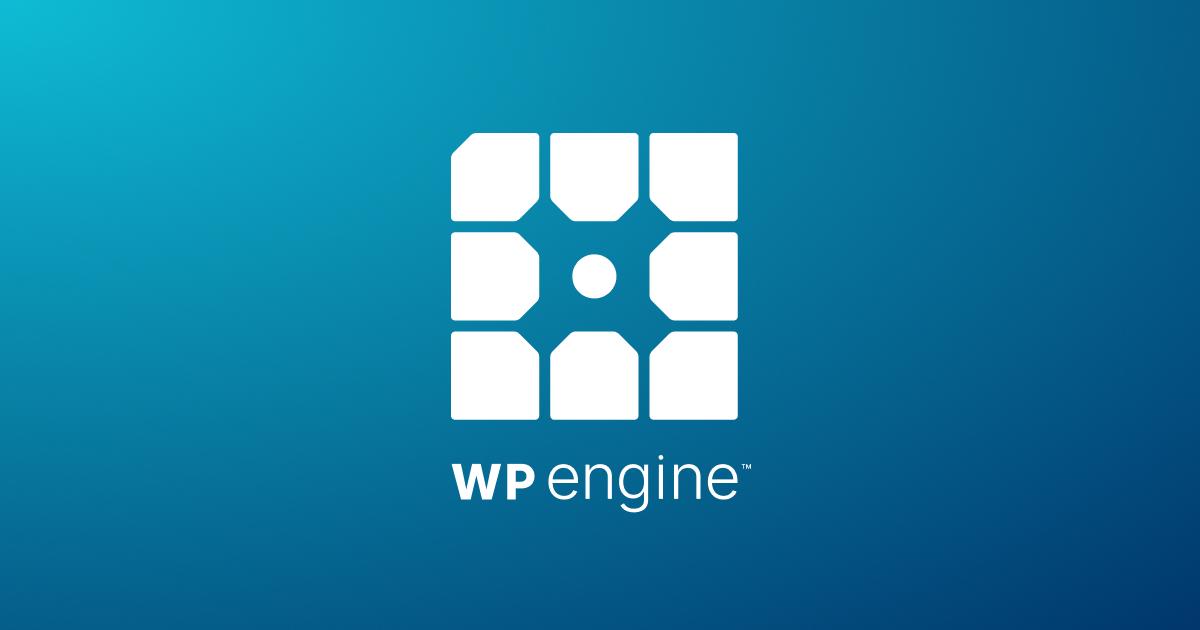
Final Recommendations: Choosing the Right Fit for You
When selecting between WP Engine and WordPress.com, it’s essential to consider your specific needs and goals. Here are some key factors to guide you in making the right choice:
- Budget: Assess your financial resources and how much you’re willing to invest in a hosting solution. WP Engine typically offers premium plans suited for businesses and developers, while WordPress.com provides more budget-friendly options for individuals and small sites.
- Website Purpose: Determine the primary purpose of your website. If you’re launching a professional site that requires advanced features, WP Engine’s managed hosting may be the better choice, while WordPress.com could suffice for personal blogs or simple projects.
- Customization Needs: If you want complete control over your site’s design and functionality, WP Engine allows for extensive customization through plugins and themes. In contrast, WordPress.com has limitations on customization unless you opt for their higher-tier plans.
To help you visualize the differences, consider the following comparison:
| Feature | WP Engine | WordPress.com |
|---|---|---|
| Hosting Type | Managed | Shared/Managed |
| Support | 24/7 Live Chat | Email Support |
| Customization | High | Limited (unless on higher plans) |
| Pricing | Premium | Varies (including free tier) |
Ultimately, the best choice hinges on a blend of your budget, technical requirements, and long-term vision for your website. Take the time to explore each platform’s features and pricing plans, and don’t hesitate to reach out for help if needed. Making an informed decision today will set a strong foundation for your online presence in the future.
Q&A
Sure! Here’s a Q&A for an article titled “WP Engine vs WordPress.com: Who Has the Better Plans and Prices?” with a creative and neutral tone.
Q1: What are the primary differences between WP Engine and WordPress.com?
A1: WP Engine is a managed WordPress hosting provider focused on delivering high-performance hosting solutions tailored for businesses and developers. On the other hand, WordPress.com is a website-building platform that offers hosting along with various content management features, making it accessible for users of all skill levels. While WP Engine emphasizes speed and support for more complex projects, WordPress.com caters to both casual bloggers and small businesses with straightforward pricing and user-friendly tools.
Q2: How do the pricing structures of WP Engine and WordPress.com compare?
A2: WP Engine offers tiered pricing plans that reflect the level of service, resources, and support provided. Their starting plans can seem higher than WordPress.com, which offers a variety of free and paid subscription options. WordPress.com’s pricing is segmented into free, personal, premium, and business plans, making it flexible for different budgets. However, the value of WP Engine’s premium service may be more appealing for those needing advanced features and dedicated customer support.
Q3: Which platform is more suitable for beginners?
A3: For beginners, WordPress.com is often the go-to choice. Its intuitive interface allows users to set up a website with minimal technical knowledge, and its free plan provides a great starting point. WP Engine, while powerful, might be overwhelming for those who are new to website creation due to its advanced features and requirements. However, once users become more familiar with WordPress, they may find the benefits of WP Engine’s managed services appealing for scaling their site.
Q4: What kind of support can users expect from each platform?
A4: WP Engine prides itself on exceptional customer support, offering 24/7 live chat and phone support, along with a wealth of resources tailored for developers. Their team is well-versed in managing WordPress-specific issues. Conversely, WordPress.com provides support primarily through online documentation and tiered customer service, where premium users receive priority assistance. While WordPress.com offers helpful resources, those needing immediate and specialized support may find WP Engine more accommodating.
Q5: Which platform offers better scalability for growing websites?
A5: WP Engine is designed for scalability, making it an excellent choice for businesses expecting rapid growth or high traffic. With robust resources, automatic backups, and performance optimization features, it provides a solid foundation for expanding websites. WordPress.com, while scalable to a degree with its business and eCommerce plans, may encounter limitations as a site grows more complex. For users with ambitious growth plans, WP Engine’s infrastructure may prove to be more advantageous.
Q6: Are there any significant performance differences between WP Engine and WordPress.com?
A6: Yes, there are notable performance differences. WP Engine’s managed hosting is optimized specifically for WordPress, resulting in faster load times and better uptime. They utilize advanced caching and content delivery networks (CDNs) to enhance performance. In contrast, WordPress.com’s performance can vary based on the user’s chosen plan, with higher-level plans offering improved speed and reliability, but they may not match the specialized hosting capabilities of WP Engine.
Q7: Which platform is better for eCommerce?
A7: For eCommerce, WP Engine generally provides a stronger solution, especially for larger online stores needing robust performance and security features. It integrates seamlessly with WooCommerce, allowing for extensive customization and scalability. WordPress.com also supports eCommerce through its Business and eCommerce plans, but the features may be more limited compared to WP Engine’s offerings. Ultimately, the choice will depend on the specific eCommerce needs of the business.
Q8: Is it easy to migrate from one platform to the other?
A8: Migration can be straightforward, but it depends on the user’s technical skills. WP Engine offers migration tools and support for those moving from other hosts to their platform. Meanwhile, WordPress.com provides options to export content, but migrating to WP Engine may require additional steps to ensure that everything, including themes and plugins, transitions smoothly. Users should prepare for potential challenges when switching platforms and consider seeking professional help if necessary.
This Q&A format provides a balanced overview of WP Engine and WordPress.com, helping readers to understand their respective strengths and offerings in a neutral manner.
Insights and Conclusions
In the ever-evolving landscape of website hosting, the choice between WP Engine and WordPress.com can feel as complex as the code that powers them. As we’ve explored, both platforms offer unique advantages tailored to different needs—whether you’re a budding blogger or a seasoned developer. WP Engine stands out with its robust performance and comprehensive support, making it a prime choice for businesses seeking scalability and reliability. On the other hand, WordPress.com offers an accessible entry point for those looking to quickly build their online presence without the fuss of technical management.
Ultimately, the better plan is contingent upon your specific goals, technical expertise, and budget. Carefully weigh the features against your requirements, and don’t hesitate to leverage free trials or money-back guarantees to test the waters. In the world of web hosting, informed choices lead to empowered creators. No matter which platform you choose, both WP Engine and WordPress.com can propel your digital endeavors to new heights—so dive in and start building your online legacy!


